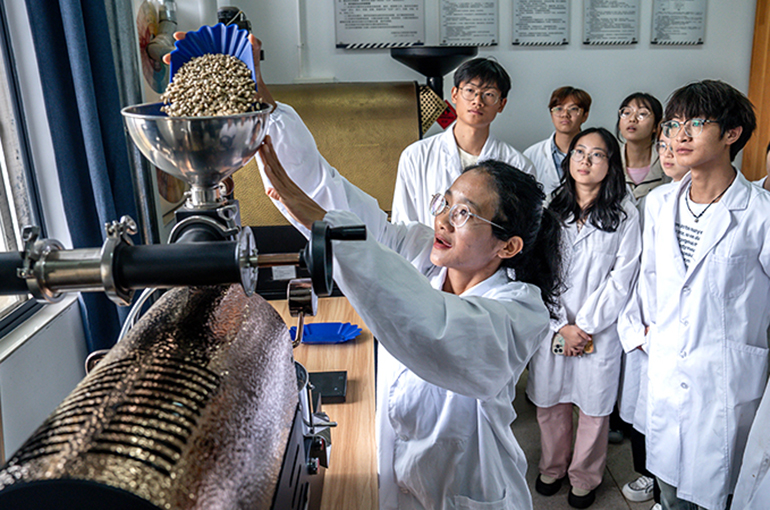 China Approves 32 New Higher Education Institutions, Including 23 Vocational Colleges
China Approves 32 New Higher Education Institutions, Including 23 Vocational Colleges(Yicai) May 23 -- China's Ministry of Education has approved the establishment of 32 new institutions providing higher education, with 23 being vocational universities, to boost vocational training and develop a highly skilled workforce.
Guangzhou Panyu Polytechnic, Shenzhen Institute of Information Technology, and Shunde Polytechnic in Guangdong, China's largest provincial-level economy, were part of the newly approved vocational colleges, according to a list the education ministry published yesterday.
The economically developed eastern province of Jiangsu saw three vocational institutions approved, located in Suzhou, Yangzhou, and Wuxi, while neighboring Zhejiang province saw one in Hangzhou and one in Ningbo.
China launched a pilot vocational education reform in 2019 to meet the growing demand for technical talent, elevating some junior colleges to undergraduate-level institutions, with the number of vocational colleges exceeding 80 after the latest approvals. The initiative aims to enhance the quality of vocational education and improve its social status.
With the transformation and upgrading of industries, companies increasingly need versatile talents who possess strong technical skills and a solid theoretical foundation, an insider from a cross-border e-commerce firm told Yicai, adding that such talents have greater potential for career development.
In recent years, driven by the dual influence of national policies and market demand, the enrollment growth rate of vocational education has significantly outpaced that of general education.
The number of students enrolling in general high education in China rose 2.2 percent to 4.8 million in 2023 from the previous year, according to data from the education ministry. In comparison, that of students enrolling in vocational colleges under the new program jumped 18 percent to around 90,000 and of those junior colleges climbed 3 percent to 5.6 million.
The list of approved institutions also included four newly established regular colleges, four renamed universities, and one independent college that was upgraded to a university.
Editors: Dou Shicong, Martin Kadiev